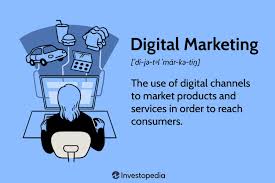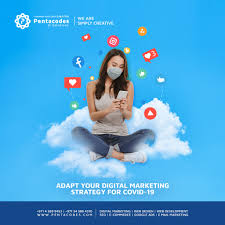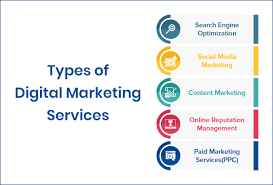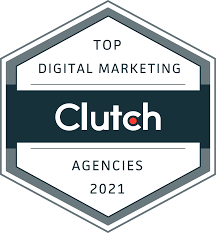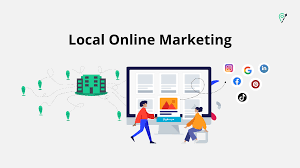The Power of Digital Marketing Communication
In today’s fast-paced digital world, effective communication is key to reaching and engaging with your target audience. Digital marketing communication plays a vital role in connecting businesses with their customers in a meaningful and impactful way.
What is Digital Marketing Communication?
Digital marketing communication encompasses all online strategies and tactics used by businesses to promote their products or services, build brand awareness, and drive customer engagement. This includes various channels such as social media, email marketing, content marketing, search engine optimisation (SEO), pay-per-click advertising, and more.
The Benefits of Digital Marketing Communication
One of the main advantages of digital marketing communication is its ability to reach a large audience quickly and cost-effectively. Through targeted campaigns, businesses can tailor their messages to specific demographics, interests, and behaviours, increasing the likelihood of conversion.
Furthermore, digital marketing allows for real-time monitoring and analysis of campaign performance. Businesses can track metrics such as website traffic, click-through rates, conversion rates, and more to measure the effectiveness of their communication efforts and make data-driven decisions for future strategies.
Key Strategies for Effective Digital Marketing Communication
- Content Marketing: Creating valuable and relevant content that resonates with your target audience can help build trust and credibility for your brand.
- Social Media Engagement: Leveraging social media platforms to interact with customers, share updates, run promotions, and drive traffic to your website.
- Email Marketing: Sending personalised emails to subscribers with tailored content and offers can nurture leads and encourage repeat business.
- Search Engine Optimisation (SEO): Optimising your website for search engines can improve visibility in search results and drive organic traffic.
- Data Analytics: Using tools to track and analyse user behaviour allows businesses to refine their strategies for better results.
In Conclusion
Digital marketing communication is a powerful tool for businesses looking to connect with their target audience in today’s digital landscape. By implementing strategic campaigns across various online channels and continuously refining their approach based on data insights, businesses can effectively engage customers, drive conversions, and achieve long-term success.
Mastering Digital Marketing Communication: 8 Essential Tips for Success
- Understand your target audience and tailor your message to their needs and preferences.
- Utilise multiple digital channels such as social media, email, and website content to reach a wider audience.
- Create engaging and relevant content that resonates with your audience to drive interest and interaction.
- Consistently monitor and analyse data metrics to assess the effectiveness of your digital marketing strategies.
- Personalise communication where possible to build stronger connections with customers or clients.
- Stay updated on current trends in digital marketing to remain competitive in the online landscape.
- Utilise SEO techniques to improve visibility and ranking on search engine results pages (SERPs).
- Encourage feedback from customers through surveys or reviews to continually improve your digital marketing efforts.
Understand your target audience and tailor your message to their needs and preferences.
To excel in digital marketing communication, it is crucial to have a deep understanding of your target audience. By identifying their needs, preferences, and behaviours, businesses can tailor their messages effectively to resonate with their audience. Personalising content and delivering relevant information that addresses the specific interests of the target demographic not only enhances engagement but also fosters a stronger connection with customers. This customer-centric approach is key to driving successful digital marketing campaigns and achieving desired outcomes in today’s competitive online landscape.
Utilise multiple digital channels such as social media, email, and website content to reach a wider audience.
To maximise the reach and impact of your digital marketing communication efforts, it is essential to leverage multiple channels effectively. By utilising platforms like social media, email marketing, and website content in a cohesive strategy, businesses can engage with a broader audience and increase brand visibility. Each channel offers unique opportunities to connect with customers at different touchpoints along their digital journey, allowing for a more comprehensive and targeted approach to reaching potential customers and fostering lasting relationships.
Create engaging and relevant content that resonates with your audience to drive interest and interaction.
To enhance your digital marketing communication strategy, focus on creating compelling and tailored content that connects with your audience on a personal level. By delivering engaging and relevant material that speaks to their needs and interests, you can capture their attention, spark curiosity, and encourage meaningful interactions. This approach not only cultivates a sense of trust and loyalty but also drives interest in your brand, ultimately leading to increased engagement and conversions.
Consistently monitor and analyse data metrics to assess the effectiveness of your digital marketing strategies.
Consistently monitoring and analysing data metrics is crucial in assessing the effectiveness of your digital marketing strategies. By tracking key performance indicators such as website traffic, conversion rates, click-through rates, and engagement metrics, businesses can gain valuable insights into the impact of their campaigns. This data-driven approach allows for informed decision-making, enabling businesses to refine their strategies, optimise performance, and ultimately achieve better results in reaching and engaging with their target audience online.
Personalise communication where possible to build stronger connections with customers or clients.
Personalising communication is a crucial strategy in digital marketing to foster stronger connections with customers or clients. By tailoring messages, offers, and content to individual preferences and behaviours, businesses can create a more engaging and relevant experience for their audience. Personalisation shows that you understand and care about your customers’ needs, leading to increased loyalty, trust, and ultimately, higher conversion rates. In today’s competitive digital landscape, the ability to connect on a personal level can set businesses apart and drive long-term success.
Stay updated on current trends in digital marketing to remain competitive in the online landscape.
Staying updated on current trends in digital marketing is essential to maintaining a competitive edge in the ever-evolving online landscape. By keeping abreast of the latest developments, businesses can adapt their strategies to meet changing consumer behaviours and preferences, ensuring that they stay relevant and engaging to their target audience. Embracing new trends and technologies allows businesses to innovate and differentiate themselves from competitors, ultimately driving success in the dynamic world of digital marketing communication.
Utilise SEO techniques to improve visibility and ranking on search engine results pages (SERPs).
By utilising SEO techniques in your digital marketing communication strategy, you can enhance your online visibility and boost your ranking on search engine results pages (SERPs). Implementing effective SEO practices such as keyword optimisation, creating high-quality content, and improving website structure can help drive organic traffic to your site and increase the likelihood of being discovered by potential customers searching for relevant products or services. By focusing on SEO, you can improve your online presence and attract more targeted traffic to your website, ultimately leading to better engagement and conversions.
Encourage feedback from customers through surveys or reviews to continually improve your digital marketing efforts.
Encouraging feedback from customers through surveys or reviews is a valuable strategy to enhance your digital marketing communication efforts. By actively seeking input from your audience, you gain valuable insights into their preferences, needs, and satisfaction levels. This feedback loop allows you to identify areas for improvement, refine your strategies, and tailor your messaging to better resonate with your target market. Ultimately, by listening to and acting upon customer feedback, you can strengthen customer relationships, boost brand loyalty, and drive the success of your digital marketing campaigns.

